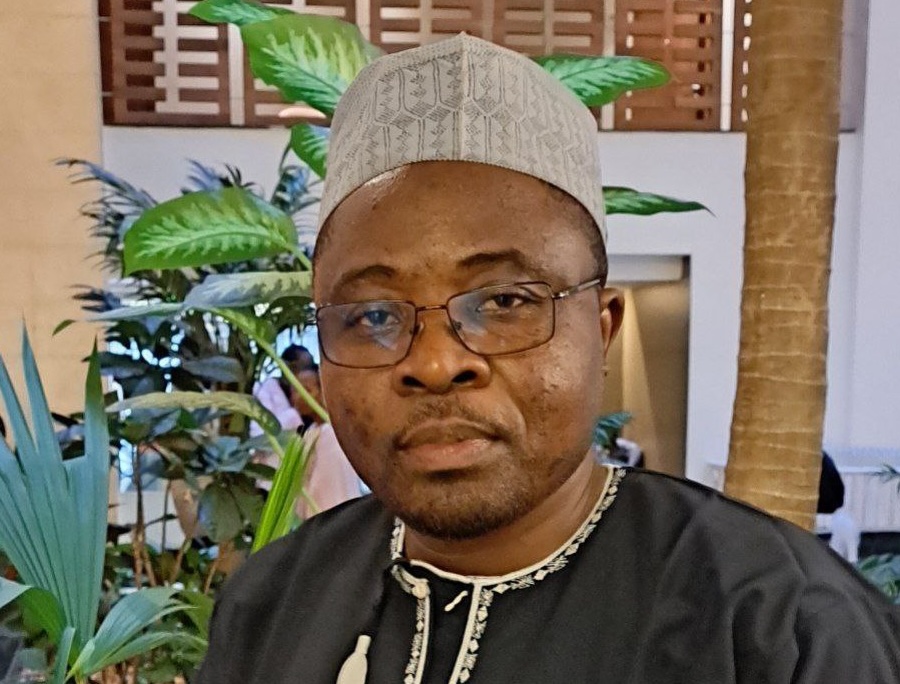By Guy Feugap (Cameroon), Africa Organizer, World BEYOND War
Talking points for the meeting with the UN High Representative for Disarmament Affairs
About World BEYOND War: a global movement that advocates for the abolition of war as an institution and for building of a global security system based on just and lasting peace. We work through three pillars: education, nonviolent action, and media work, to debunk the myths of war, mobilize citizens, and transform mindsets. Our movement is now present in more than 40 countries, including several African countries where we have 17 chapters, with young people and women mobilizing for disarmament and building a movement of peace activists.
Advancing disarmament priorities
In our daily advocacy, we are confronted with the reality that disarmament is a matter reserved for States, considered a military secret, an area in which civil society is not welcome. Disarmament cannot be such a technical exercise that is reserved only for States. In reality, it is simply a human question that should concern anyone who really wants an end to wars. In Africa, armed conflicts, most often fuelled by external arms flows, demonstrate that disarmament is not just an activity, but rather a necessity for development.
To advance disarmament priorities under UN80, I believe that direct partnerships with local civil society, including youth and women’s organizations, in conflict areas should be strengthened; regular consultations should take place between the Office for Disarmament Affairs and regional and local civilian coalitions to take into account the voices of victims of armed violence. The demands of the actors in the field must be translated into concrete local actions with their participation.
Challenging the idea that disarmament is utopian
In Africa, more than anywhere else, this idea persists because war has become an economy. The arms trade and the exploitation of wealth are more valuable than human life. Yet, our chapters and affiliates who live far from political circles demonstrate to us on a daily basis that peace is possible when local communities are involved, when weapons are not flowing, and when resources are directed to basic social services. On this point, it appears that disarmament can be a reality if the political will meets the aspirations of civil society. At WBW, we demand that every dollar invested in armaments be withdrawn for the benefit of ending hunger, poverty, education, health, etc. Every foreign military base on the continent is a reminder of the failure of war prevention and keeps alive the desire to prepare for war constantly, jeopardizes the efforts of active non-violence and preventive diplomacy. Closing foreign imperial bases is a good start to disarmament; we would have fewer weapons.
That is why WBW proposes an integrated approach to non-violent security, which we call “A Global Security System: An Alternative to War”, a model that demonstrates, with concrete examples, that a world without war is possible and even already under construction.
On military expenditures
Civil society already plays a decisive role in making the human and social cost of military spending visible. WBW is running a billboard project, to inform the general public about what only 3% of US military spending could do to end starvation on earth. In African countries, military spending is growing even though people lack healthcare, water and education. The chapters are conducting citizen campaigns to demand the reallocation of military budgets to development, which we call divestment from war to peace.
The fact that the political choices behind the money spent on arms are not known to the African people makes it difficult to coordinate disarmament efforts. Working with the UN means asking states to be more transparent.
Joint strategies
The UN missions in Africa are strongly criticized because they are considered ineffective. Insecurity persists despite years of presence and significant resources committed. Some missions, such as MONUSCO, have faced hostility from local populations. Our DRC chapter is currently leading a campaign for peace in that country (#StandWithCongo). In this context, a letter campaign has been initiated and has already collected 610 signatures from people asking the UN (Office of the SG) to ensure, among other things, the cessation of hostilities and the immediate withdrawal of Rwandan troops from Congolese territory and the cessation of the shipment of weapons to this country.
We believe that the UN that receives such civil society-initiated campaigns should at least send an official response from the UN, if only to say that they have received it and that it can be discussed. Moreover, the UN should impose an arms embargo and sanctions on governments that send arms to countries at war. The United Nations should not escalate wars or deploy armed troops in conflict zones.
Civil society has been also campaigning for a world free of nuclear weapons. In terms of joint strategy, the United Nations could enforce the Treaty on the Non-Proliferation of Nuclear Weapons, which requires negotiations on the elimination of nuclear weapons and all other weapons.
It is relevant to strengthen a UN-civil society coalition, without excluding community-based organizations. Moral disarmament is an area in which it is important to invest, that is, to work towards a culture of peace, which we must include in school curricula and in the media.
The post WBW’s Africa Organizer Testifies on Disarmament at United Nations appeared first on World BEYOND War.
From World BEYOND War via this RSS feed



